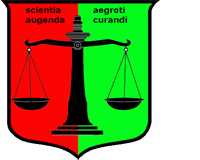Institute for Response-Genetics (e.V.)Chairman: Prof. Dr. Hans H. StassenPsychiatric Hospital (KPPP), University of Zurich |

|


|
Genetic Diversity in Families with AlcoholismIn the case of genetically complex disorders, like alcohol dependence, the standard phenotype-to-genotype research strategy may not readily lead to the detection of "signals" if the contributions of single loci are small, and if there exist significant interactions between loci. In contrast, the genotype-to-phenotype strategy has its main focus on oligogenic, interacting models that evaluate the within-family similarities of high-dimensional genetic feature vectors. In this approach, the power of detecting "signals" increases with the genetic variation that arises from the existence of various alleles at the different loci, and that is expected to be greatest when there are many alleles at a locus, all at equal frequency. COGA Study: Affected versus Unaffected SibsUsing genotypes of 280 marker loci on the 22 autosomes of 105 alcohol-dependent probands, their affected and unaffected sibs, as well as their parents, we iteratively constructed a genetic similarity function that enabled us to quantify the inter-individual genetic distances d(Xi,Xj) between feature vectors Xi, Xj made up by the allelic patterns of individuals i, j with respect to n loci L1, L2, .. Ln. Based on this similarity function, we investigated the sib-sib similarities which are expected to deviate from "0.5" in affected sib pairs if the region of interest contains markers close to disease-causing genes. The reference value "0.5" was derived by evaluating the parent-offspring similarities which are always "0.5", irrespective of the status of affectedness of parents and offspring. Additionally, we determined the eigenvectors that optimally represented the genetic variation ("diversity") associated with the feature vectors. Genetic DiversityIt turned out that (1) typically 3-4 eigenvectors explained two thirds of the genetic variation inherent to the 8-20 polymorphic markers of each autosome, and (2) several marker configurations on chromosomes 1, 3, 7, 15 and 17 reproducibly discriminated (p < 0.01) probands and unaffected sibs on the one hand, and affected and unaffected sibs on the other ("affected vs unaffected"), while no such differences were found between probands and affected sibs ("affected vs affected"). References
Stassen HH, Bachmann S, Bridler R, Cattapan K, Seifritz E. Polypharmacy in Psychiatry and
Weight Gain: Longitudinal Study of 832 Patients Hospitalized for Depression or Schizophrenia,
along with Data of 3,180 Students from Europe, the U.S., South America, and China.
Eur Arch Psychiatry Clin Neurosci. 2024; https://doi.org/10.1007/s00406-024-01767-2
(Epub ahead of print)
[get the article]
Stassen HH, Bachmann S, Bridler R, Cattapan K, Hartmann AM, Rujescu D, Seifritz E, Weisbrod M,
Scharfetter C: Genetic Determinants of Antidepressant and Antipsychotic Drug Response:
A molecular-genetic study of 902 patients over 6 weeks. Psychiatry Res. 2024 [submitted for publication]
Stassen HH, Bachmann S, Bridler R, Cattapan K, Hartmann AM, Rujescu D, Seifritz E, Weisbrod M,
Scharfetter C. Analysis of genetic diversity in patients with major psychiatric disorders
versus healthy controls: A molecular-genetic study of 1698 subjects genotyped for 100 candidate
genes (549 SNPs). Psychiatry Res. 2024; 333: 115720. doi: 10.1016/j.psychres.2024.115720
[get the article]
Greil W, de Bardeci M, Müller-Oerlinghausen B, Nievergelt N, Stassen HH, Hasler G, Erfurth A,
Cattapan K, Rüther E, Seifert J, Toto S, Bleich S, Schoretsanitis G. Controversies regarding
lithium-associated weight gain: case-control study of real-world drug safety data.
Int J Bipolar Disord. 2023; 11(1): 34. doi: 10.1186/s40345-023-00313-8
[get the article]
de Bardeci M, Greil W, Stassen H, Willms J, Köberle U, Bridler R, Hasler G, Kasper S, Rüther E,
Bleich S, Toto S, Grohmann R, Seifert J. Dear Doctor Letters regarding citalopram and escitalopram:
guidelines vs real-world data. Eur Arch Psychiatry Clin Neurosci. 2023; 273(1): 65-74
[get the article]
Stassen HH, Bachmann S, Bridler R, Cattapan K, Herzig D, Schneeberger A, Seifritz E:
Detailing the Effects of Polypharmacy in Psychiatry: Longitudinal Study of 320 Patients
Hospitalized for Depression or Schizophrenia. Eur Arch Psychiatry Clin Neurosci. 2022;
272(4): 603-619
[get the article]
Greil W, de Bardeci M, Seifert J, Bernegger X, Cattapan K, Stassen HH, Wagner AL, Sieberer M,
Grohmann R, Toto S: Treatment of depression: Are psychotropic drugs appropriately dosed in women
and in the elderly? Dosages of psychotropic drugs by sex and age in routine clinical practice.
Hum Psychopharmacol. 2022; 37(1): e2809
[get the article]
Stassen HH, Bachmann S, Bridler R, Cattapan K, Herzig D, Schneeberger A, Seifritz E:
Inflammatory Processes linked to Major Depression & Schizophrenic Disorders and the Effects
of Polypharmacy in Psychiatry: Evidence from a longitudinal Study of 279 Patients under
Therapy. Eur Arch Psychiatry Clin Neurosci. 2021; 271(3): 507-520
[get the article]
Pollak TA, Lennox B, Müller S, Benros ME, Prüss H, Tebartz van Elst L, Klein H, Steiner J,
Frodl T, Bogerts B, Tian L, Groc L, Hasan A, Baune BT, Endres D, Haroon E, Yolken R,
Benedetti F, Halaris A, Meyer J, Stassen HH, Leboyer M, Fuchs D, Otto M, Brown DA, Vincent A,
Najjar S, Bechter K: An international consensus on an approach to the diagnosis and
management of psychosis of suspected autoimmune origin: the concept of autoimmune psychosis.
Lancet Psychiatry 2020; 7(1): 93-108
Zhang M, Bridler R, Mohr C, Moragrega I, Sun N, Xu Z, Yang Z, Possenti M, Stassen HH:
Early Detection of the Risk of Developing Psychiatric Disorders: A Study of 461 Chinese University
Students under Chronic Stress. Psychopathology 2019; 52(6): 367-377
[get the article]
Bhake R, Kluckner V, Stassen HH, Russell GM, Leendertz J, Stevens K, Linthorst ACE,
Lightman S: Continuous Free Cortisol Profiles – Circadian Rhythms in Healthy Men.
J Clinical Endocrinology & Metabolism 2019; 104(12): 5935-5947
Stassen HH: Heterogeneity of schizophrenic disorders and link to chronically elevated IgM
values. Neurology, psychiatry and brain research 2018; 29: 23-24
Braun S, Bridler R, Müller N, Schwarz MJ, Seifritz E, Weisbrod M, Zgraggen A, Stassen HH:
Inflammatory Processes and Schizophrenia: Two Independent Lines of Evidence from a Study
of Twins Discordant and Concordant for Schizophrenic Disorders. Eur Arch Psychiatry Clin
Neurosci 2017; 267: 377-389
[get the article]
Stassen HH, Delfino JP, Kluckner VJ, Lott P, Mohr C: Vulnerabilität und psychische Erkrankung.
Swiss Archives of Neurology and Psychiatry 2014; 165(5): 152-157
Drago A, Giegling I, Schäfer M, Hartmann AM, Friedl M, Konte B, Möller HJ, De Ronchi D, Stassen HH,
Serretti A, Rujescu D: AKAP13, CACNA1, GRIK4 and GRIA1 genetic variations may be associated with
haloperidol efficacy during acute treatment. Eur Neuropsychopharmacol. 2013; 23(8): 887-894
Giegling I, Balzarro B, Porcelli S, Schäfer M, Hartmann AM, Friedl M, Konte B, Krämer P, Möller HJ,
De Ronchi D, Stassen HH, Serretti A, Rujescu D: Influence of ANKK1 and DRD2 polymorphisms in
response to haloperidol. Eur Arch Psychiatry Clin Neurosci. 2013; 263(1): 65-74
Drago A, Giegling I, Schäfer M, Hartmann AM, Möller HJ, De Ronchi D, Stassen HH, Serretti A,
Rujescu D: No association of a set of candidate genes on haloperidol side effects.
PLoS One. 2012; 7(10): e44853
Giegling I, Drago A, Schäfer M, Hartmann AM, Sander T, Toliat MR, Möller HJ, De Ronchi D,
Stassen HH, Rujescu D, Serretti A: Lack of association between 71 variations located in
candidate genes and response to acute haloperidol treatment. Psychopharmacology 2011; 214(3):
719-728
Giegling I, Drago A, Dolzan V, Plesnicar BK, Schäfer M, Hartmann AM, Sander T, Toliat MR,
Möller HJ, Stassen HH, Rujescu D, Serretti A: Glutamatergic gene variants impact the clinical
profile of efficacy and side effects of haloperidol. Pharmacogenet Genomics. 2011; 21(4): 206-216
Gravemann S, Schnipper N, Meyer H, Vaya A, Nowaczyk MJM, Rajab A, Hofmann WK, Salewsky B,
Tönnies H, Neitzel H, Stassen HH, Sperling K, Hoffmann K: Dosage effect of zero to three
functional LBR-genes in vivo and in vitro. Nucleus 2010; 1(2): 1-12
Hoffmann K, Planitz C, Rüschendorf F, Müller-Myhsok B, Stassen HH, Lucke B, Mattheisen M,
Stumvoll M, Bochmann R, Zschornack G, Wienker TF, Nürnberg P, Reis A, Luft FC, Lindner TH: A
novel locus for arterial hypertension on chromosome 1p36 maps to a metabolic syndrome trait
cluster in the Sorbs, a Slavic population isolate in Germany. J Hypertens 2009; 27: 983-990
Stassen HH, Hoffmann K, Scharfetter C: The Difficulties of Reproducing Conventionally Derived
Results through 500k-Chip Technology. BMC Genet Proc. 2009; 3 Suppl 7: S66
Tadic A, Rujescu D, Dahmen N, Stassen HH, Muller MJ, Kohnen R, Szegedi A: Association
Analysis between Variants of the Interleukin-1? and the Interleukin-1 Receptor Antagonist
Gene and Antidepressant Treatment Response in Major Depression. Neuropsychiatr Dis Treat
2008; 4(1): 269-276
Stassen HH, Angst J, Hell D, Scharfetter C, Szegedi A: Is there a common resilience mechanism
underlying antidepressant drug response? Evidence from 2'848 patients. J Clin Psychiatry 2007;
68(8): 1195-1205
Tadic A, Rujescu D, Müller MJ, Kohnen R, Stassen HH, Dahmen N, Szegedi A: A monoamine
oxidase B gene variant and short-term antidepressant treatment response. Prog
Neuropsychopharmacol Biol Psychiatry. 2007; 31(7): 1370-1377
Tadic A, Müller MJ, Rujescu D, Kohnen R, Stassen HH, Dahmen N, Szegedi A: The MAOA
T941G polymorphism and short-term treatment response to mirtazapine and paroxetine in
major depression. Am J Med Genet B Neuropsychiatr Genet. 2007; 144(3): 325-331
Stassen HH, Szegedi A, Scharfetter C: Modeling Activation of Inflammatory Response System.
A Molecular-Genetic Neural Network Analysis. BMC Proceedings 2007, 1 (Suppl 1): S61, 1-6
Berger M, Stassen HH, Köhler K, Krane V, Mönks D, Wanner C, Hoffmann K, Hoffmann MM, Zimmer M,
Bickeböller H, Lindner TH: Hidden population substructures in an apparently homogeneous
population bias association studies. Eur J Hum Genetics 2006; 14: 236-244
Stassen HH, Angst J, Scharfetter C, Szegedi A: Therapie mit Antidepressiva: Erfolg von
genetischen Faktoren abhängig? Leading Opinions, Neurologie & Psychiatrie 2005; 6: 25-27
Szegedi A, Rujescu D, Tadic A, Müller MJ, Ralf Kohnen R, Stassen HH, Dahmen N: The
catechol-O-methyltransferase Val108/158Met-polymorphism affects short-term treatment response
to mirtazapine, but not to paroxetine in Major Depression. Pharmacogenomics 2005; 5(1): 49-53
Stassen HH, Bridler R, Hell D, Weisbrod M, Scharfetter C: Ethnicity-independent genetic basis
of functional psychoses. A Genotype-to-phenotype approach. Am J Med Genetics B 2004; 124:
101-112
Stassen HH, Hoffmann K, Scharfetter C: Similarity by state/descent and genetic vector spaces:
Analysis of a longitudinal family study. Genetic Analysis Workshop 13: Analysis of longitudinal
family data for complex diseases and related risk factors. BMC Genet 2003; 4, S59: 1-6
Stassen HH, Scharfetter C: Oligogenic approaches to the predisposition of asthma in ethnically
diverse populations. Genetic Analysis Workshop 12: Analysis of genetic and environmental factors
in common diseases. Genetic Epidemiology 2001; 21(1): 284-289
Hoffmann K, Stassen HH, Reis A: Genkartierung in Isolatpopulationen. Medizinische Genetik 2000;
12,4: 428-437
Stassen HH, Bridler R, Hägele S, Hergersberg M, Mehmann B, Schinzel A, Weisbrod M, Scharfetter C:
Schizophrenia and smoking: evidence for a common neurobiological basis?
Am J Med Genetics B 2000; 96: 173-177
Stassen HH and Scharfetter C: Integration of genetic maps by polynomial transformations.
Am J Med Genetics B 2000; 96: 108-113
Stassen HH, Begleiter H, Porjesz B, Rice J, Scharfetter C, Reich T: Structural decomposition of
genetic diversity in families with alcohol dependence. Genetic Analysis Workshop 11: Analysis
of genetic and environmental factors in common diseases. Genetic Epidemiology 1999; 17:
325-330
|
|

Very similar NPL score characteristics for multiplex nuclear families ascertained in 2 independent waves ("Wave-I", "Wave-II") through index-cases with a diagnosis of alcohol dependence indicate reproducibility of vulnerability and protection loci.
Please note: important here is not the absolute size of the locus contributions
when comparing the 2 populations ascertained through index cases with a diagnosis of
alcohol dependence, but the fact that the signals are showing up at the same genomic locations
(green marks).
|
|
| [ Mail to Webmaster ] k454910@ifrg.ch |